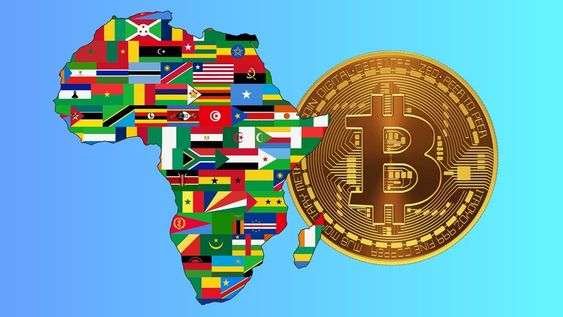
For the past few years, blockchain technologies have been finding practical applications in Africa and around the globe. The use-cases for blockchain technology are still being defined by innovators and innovation ecosystems, and the notion of blockchain is still gaining ground on a regular basis. We can be positive, though, that these technologies have great promise for helping Africa with some of its problems.
It’s crucial to present a balanced perspective on blockchain technology and to be clear about what can and cannot be used in Africa. We must be confident that using blockchain technology does not equate to giving up rights to data protection and sovereignty. Our adoption of technology needs to accelerate Africa’s transition to a single digital economy.
Blockchain technology in a brief
Blockchain follows in a long tradition of physical and digital accounting technol
ogies. Historically, traders used books of lists (i.e. ledgers) to track the goods they
bought, sold and traded (i.e. transactions). In modern times, these ledgers became
more diverse, as they included account balance sheets, cadastre systems or
identity records. Until recently, however, they remained centralised, meaning that
one entity was in control over the system – be it records on paper or in digital form. Digital ledgers, including blockchain, then brought about a major change as lists of transactions are no longer stored in one central location. Instead, multiple parties share control over simultaneously maintained copies of the same ledger.
Prospects of Blockchain in Africa

The notion that blockchain technology is having an influence on African lives, well-being, and resilience is further evidenced by the fact that Africa is the only region in the world to have seen an explosion in blockchain-specific funding and increasing venture capital.
Globally, blockchain venture capital is increasing (6,5%) as a percentage of total venture funding. More than double the global average, blockchain funding in Africa reached a record 15% of all sector-agnostic venture funds raised by the continent, underscoring the continent’s ongoing development as a key destination for blockchain-based startup investment.
Africa – real-life blockchain utility

The report shows that blockchain technology continues to impact Africa to a degree that is unprecedented anywhere else in the world. It demonstrates real-life utility such as in social impact, proptech, tokenization and NFTs, energy, government, and education. The 70-page report presents an all-encompassing view of the region’s blockchain landscape, including in-depth funding data, regulatory facts, industry advancements, an investor watchlist, and engaging perspectives from pioneers and leaders within the burgeoning industry sectors.
Africa – notable raises by company & country
African blockchain companies with notable raises include Kucoin, MFS Africa, Scroll, VALR, and Carry1st. Seychelles and South Africa accounted for 81% of African blockchain funding. Nigeria is the leading country in terms of the number of blockchain startups funded, followed by South Africa, Seychelles, and Kenya. The Custody & Exchanges category was the highest-funded in Africa with a 52% share, followed by Fintech (24%), and Infrastructure & Development (15%).
Gideon Greaves, MD of CV VC Africa, notes: “With the potential to create entirely new business models the African blockchain industry is understandably experiencing rapid growth, with investors readily embracing it. Africa exhibits a magnetic collaborative environment among developers and organisations in the space. This supportive ecosystem drives the industry. Our Report indicates that the transformative potential of this technology for business operations is undeniable. As investors continue to express confidence in the blockchain industry’s sustainability and prospects, we anticipate further growth and investment in Africa in the coming years.”
Africa’s blockchain drivers – brilliant mindset, necessity & impact
The number of African blockchain deals grew by 12%, reflecting that Africa’s sharp minds are driving valuable developments, particularly in the areas of infrastructure, personal identification, record-keeping, and access to financial independence. The report illustrates that the brilliant mindset, energy, and tech capability of the founders, who are leading the African blockchain revolution are exemplary to the rest of the world.
In addition to the deep capability, a significant reason for the vibrant growth of the African blockchain sector is pure necessity. Many Africans cannot rely on vast, centralised, regulated infrastructural systems. As a result, innovation has a clean slate on which to paint and progressive advances seem to follow. These advances sometimes improve existing systems but, more often than not, they are leapfrogging entire legacy systems.
Africa: growth and societal influence

The report also shows how Africa is being given the chance to take the lead in its own development and serve as a model for other countries on how to use blockchain technology for socio-economic benefit.
“The findings indicate that the growth in the applicability of blockchain technology is unstoppable,” says Ian Putter, head of Standard Bank’s Blockchain CoE&CA Training Office. “At Standard Bank, we are utilising technology to effect change in a way that is inclusive and controlled. Web3, the next iteration of the Internet, depends on blockchain technology.
“We are convinced that Web3 will be the economy of the future, and we recognise the role that blockchain technology will play in enabling everyone to get there,” the speaker states.
Recommendations for the
development of blockchain technology in Africa

Strategy: entering a blockchain-enabled future with a plan
Blockchain technology offers vast design options and can be implemented for a plethora of use cases. Any blockchain application requires thoughtfully arranging on-chain and off-chain governance. In this complex scenario, a blockchain strategy helps by developing a common objective and vision. On the national level, a blockchain strategy identifies country-specific opportunities, provides guidance on how to unleash these potentials and marks desirable as well as necessary growth areas.
At the pan-African level, the opportunity is even greater: a pan-African blockchain strategy could be a tool to start bridging different jurisdictions and avoid high legal costs for blockchain systems to be compliant across the continent. If designed in an inclusive manner, the process of strategy development itself presents an op
portunity to grow both the national and the African blockchain ecosystems. By harnessing contributions in a multi-stakeholder dialogue, the screening of opportunities and obstacles becomes more complete and potential lines of conflict can be reconciled early on.
Such a dialogue or alternatively, a review mechanism, should include the private sector, the technical community, research and civil society. In the international context, a blockchain strategy presents a valuable document to communicate policy positions, signal aspirations and make states approachable for collaboration and investments.
- Explore the technology: gather and analyse the plethora of possible use cases.
- Gather hands-on experience: conduct action research by initiating pilot projects to verify opportunities, identify hurdles and discard unfeasible applications.
- Broaden the knowledge base: encourage interdisciplinary research and foster in-country capacity building.
- Create innovation-friendly regulatory regimes and reduce regulatory uncertainties: address policy challenges that arise from the interplay of architectural properties and the in-country institutional landscape, e.g. in the areas of data protection, financial regulation, standardisation and interoperability. Consider engaging with existing and emerging bodies for standardisation and their resources, e.g. FATF for financial regulation, the International Organization for Standardization for market relevant standards, the Coalition for Automated Legal Applications for the coordination of legal questions and associations aiming at fostering the discussion between governmental bodies, research, science and private industry like the International Association of Trusted Blockchain Applications (INATBA).
- Focus and assign resources: identify application areas that are both viable and strategically valuable and devote resources to these areas.
Problems of blockchain in the next years
- Scalability: Blockchain networks can be slow and inefficient due to the high computational requirements needed to validate transactions. As the number of users, transactions, and applications increases, the ability of blockchain networks to process and validate them in a timely way becomes strained. This makes blockchain networks difficult to use in applications that require fast transaction processing speeds.
- Energy Consumption: The process of validating transactions on a blockchain network requires a lot of computing power, which in turn requires a lot of energy. This has led to concerns about carbon emissions and the environmental impact of blockchain technology.
- Lack of Standardization: The lack of standardization arises issues such as interoperability, increased costs, and difficult mechanisms, making mass adoption an impossible task. As blockchain technology follows no standard version, it is acting as a barrier for the entry of new developers and investors as well.
- Governance: Blockchain governance is still in its infancy, and there is no clear consensus on how to govern these decentralized systems. This lack of governance can lead to conflicts between stakeholders and can make it difficult to implement changes or upgrades.
- Security: While blockchain technology is considered secure due to its decentralized nature, it is not immune to attacks. There have been several high-profile hacks and security breaches in recent years that have exposed vulnerabilities in blockchain systems.




